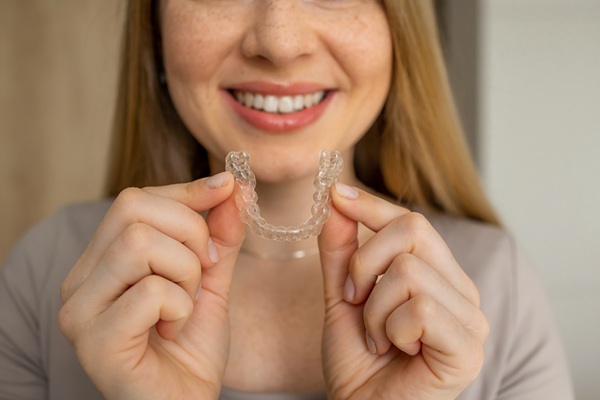 Made of durable, tooth-colored ceramic, CEREC® crowns have become popular in recent years. These restorations are sometimes used to strengthen a broken tooth. One appeal of these crowns is that they can be made in one visit.
Made of durable, tooth-colored ceramic, CEREC® crowns have become popular in recent years. These restorations are sometimes used to strengthen a broken tooth. One appeal of these crowns is that they can be made in one visit.
CEREC® crowns are natural-looking restorations, so dentists use them for front as well as back teeth. Because they are fabricated in-office, the patient has more control over the final product than with lab-made crowns. The patient can help the dentist select a shade for the tooth, and many dentists let the patient approve the design before making the crown.
3 benefits of using a CEREC® crown to restore a broken tooth
A broken tooth is a dental emergency. Without treatment, the patient may eventually lose the tooth. Consider how a dental crown can extend the life of a broken tooth.
1. Reduce sensitivity
When a tooth breaks, the second layer of the tooth, dentin, is often exposed. This part of the tooth is much more sensitive than enamel. A patient may notice a sharp, throbbing sensation when a stimulus (such as cold water) touches the tooth.
A CEREC® crown replaces the enamel of the tooth, which helps reduce dentin hypersensitivity. This makes eating and drinking much more comfortable for the patient. With a same-day procedure, the vulnerable dentin is protected in one dentist visit. If the tooth is crowned soon after breaking, sensitivity is less likely.
2. Prevent decay
Not only is dentin more sensitive than enamel, but it is also softer. Therefore, cavities start more easily in this layer. Once a cavity forms in dentin, decay progresses rapidly. To prevent cavity formation, the delicate dentin should be covered with a CEREC® crown.
If a patient does not have a broken tooth restored, the chances of losing that tooth are high. A cavity may get so large that the tooth is no longer restorable. In that case a crown would no longer be an option, and the tooth must be extracted. A missing tooth can cause many problems, including drifting of adjacent teeth and reduced chewing function.
3. Restore function
A broken tooth may cause pain when biting, so the patient may avoid chewing on that side of the mouth. To restore the tooth to proper function, a CEREC® crown can be used. When designing the restoration, a dentist can recreate the tooth's natural anatomy. This creates a bite that is comfortable for the patient.
When properly cared for, a crown can last for years. A crowned tooth functions just as a normal one. A patient's bite and chewing function are most ideal when there are no missing or broken teeth.
Conclusion
CEREC® crowns are popular restorations due to their convenience, function, and natural appearance. One of their most common uses is the restoration of broken teeth. For patients interested in this treatment, a consultation with a dentist is recommended. Find out how this same-day technology can benefit your oral health for years to come.
Request an appointment or call R. Scott Smith DDS at 714-332-4737 for an appointment in our Orange office.
Recent Posts
CEREC® (Chairside Economical Restoration of Esthetic Ceramics) combines a computer, milling instrument, and camera into one unified machine. It allows dentists to create tooth restorations in the dental clinic in a single visit. This is a convenient and efficient way to help patients who need quick dental restorations. If you want to find out about…
CEREC® (Chairside Economical Restoration of Esthetic Ceramic) ceramic crowns are innovative restorations. Patients appreciate the many advantages of CEREC crowns over traditional crown materials. The technology of these restorations continues to bring bigger smiles in many communities. Choosing CEREC ceramic crowns is an easy decision. If you want to know why, here are the details.CEREC…
If you have not yet heard about CEREC® crowns, you might want to ask your dentist. CEREC crowns are a great option for restoring your decayed tooth. It may surprise you how easily the dentist can create a CEREC crown that fits your tooth. If you have a decayed tooth that needs a crown, consider…


